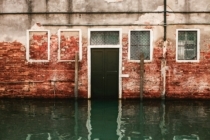Purchasing a home is a monumental life decision, but when considering properties located in flood-prone areas, being well-informed becomes absolutely crucial. At JVM Lending, we understand the unique challenges and opportunities that come with buying a home in a flood zone. In this comprehensive guide, we’ll explore flood zones, their classifications, how to determine if you live in one, and important considerations to weigh before making this significant investment.
What Is A Flood Zone?
A flood zone is a geographical area designated by the Federal Emergency Management Agency (FEMA) based on varying levels of flood risk. These zones play a pivotal role in assessing the likelihood of flooding in specific areas and serve as a critical tool for making informed real estate decisions.
What Is a Special Flood Hazard Area (SFHA)?
Special Flood Hazard Areas (SFHA) are high-risk flood zones, denoted by the letters “A” and “V.” These areas are typically found in coastal and riverside communities. Homes located in SFHAs have at least a 25% chance of experiencing a flood during a 30-year mortgage.
What Are Non-Special Flood Hazard Areas (NSFHA)?
Non-Special Flood Hazard Areas (NSFHA) encompass minimal to moderate flood risk zones, labeled with the letters “B,” “C,” and “X.” While properties in NSFHA zones are less prone to flooding, there remains a small chance of flooding due to nearby bodies of water or heavy rainfall.
How Do You Know If You Live in a Flood Zone?
Determining whether you live in a flood zone is a crucial first step. Here are two methods to identify flood zone status:
- Consult Your Real Estate Agent: Your real estate agent can provide valuable information regarding the flood zone status of a property and any history of flooding in the area.
- Use FEMA‘s Online Flood Map Service Center: Take advantage of FEMA’s online tool, which allows you to research the flood zone status of any property you’re interested in.
Things to Consider Before Buying a House in a Flood Zone
Buying a home in a flood zone requires careful thought and consideration. Here are some vital factors to keep in mind:
- Understand Your Flood Risk: If you’re contemplating a home in an “A” or “V” zone, it’s important to acknowledge the increased risk of flooding. While it doesn’t mean every rainstorm will lead to a flood, understanding your risk is essential for preparedness.
- Cost of Flood Insurance: High-risk zones typically come with higher insurance costs. It’s crucial to determine the price and availability of flood insurance, as it can significantly impact your budget.
- Mortgage Requirements: Some lenders may mandate flood insurance for specific zones. Ensure that you can meet these requirements when seeking financing for your prospective home. If you’re unsure if your mortgage requires flood insurance, consult JVM Lending’s team of experts for guidance and support!
View mortgage rates for
May 3, 2024
The Pros and Cons of Buying a House in a Flood Zone
Every real estate decision comes with its set of advantages and disadvantages. Let’s explore the pros and cons of buying a home in a flood zone:
Pros:
- Potential for Lower Home Prices: Properties in flood zones may be priced lower, providing an opportunity for a more affordable home purchase.
- Increased Resilience: Homes in flood zones often come equipped with adaptations such as raised foundations or flood barriers, enhancing their resilience in the face of potential flooding.
Cons:
- Higher Insurance Costs: High-risk zones may require costly flood insurance, adding to the ongoing costs of homeownership.
- Risk of Flooding: There is a higher risk of flooding in SFHAs, which can lead to property damage, displacement, and disruption.
- Mortgage Requirements: Lenders may demand flood insurance, contributing to the overall cost of homeownership.
Frequently Asked Questions (FAQs) About Buying a Home in a Flood Zone:
How do I determine if a property is in a flood zone?
To find out if a property is in a flood zone, you can either consult your real estate agent, who typically has access to this information, or conduct your own research through FEMA’s online Flood Map Service Center.
What factors should I consider when buying a home in a flood zone?
When considering a home in a flood zone, it’s essential to assess various factors. Start by understanding the flood risk based on the property’s zone designation. High-risk zones like “A” and “V” have a greater chance of flooding. Additionally, calculate the cost of flood insurance, which can be significantly higher in these zones. Be aware that some mortgage lenders may require flood insurance for specific zones, which can impact your financing options.
Do I need flood insurance if my property is in a low-risk zone (designation B, C, or X)?
While flood insurance may not be mandatory in low-risk zones, it’s still highly recommended. Surprisingly, up to 25% of flood insurance claims come from moderate-risk areas. Protecting your investment with insurance is a wise precaution.
How can I protect my investment in a flood-prone area?
To safeguard your property in a flood-prone area, consider investing in flood insurance to cover potential property damage. Explore property adaptations, such as elevating your home out of the floodplain, to reduce vulnerability. Additionally, look into preventative measures that can make your home more appealing to future buyers, ensuring a safer and more resilient investment.
Should I disclose flood zone information when selling a home?
Yes, it’s crucial to be transparent about your property’s flood zone status when selling a home. In addition to sharing the designation, be forthright about any past flooding or water damage that the property has experienced. This honesty builds trust with potential buyers and helps them make informed decisions.
How can I accurately price my home in a flood zone?
Pricing your home accurately in a flood zone requires the expertise of a real estate professional who understands the local market dynamics and flood zone intricacies. By working with a knowledgeable agent, you can determine a fair and competitive price that reflects both the property’s value and its flood risk.
Questions About A Property In A Flood Zone? Ask JVM Lending!
Buying a home in a flood zone is a significant decision that requires thorough research, careful consideration, and preparedness for potential challenges. At JVM Lending, we are committed to providing you with the guidance and resources needed to make well-informed choices. Don’t let the challenges of flood zones deter you from your dream home—reach out to us today, and let’s embark on this journey together. Your peace of mind and the safety of your investment are our top priorities.
If you’re thinking of buying a home in a flood zone and have questions about how that may affect your mortgage financing, contact JVM Lending’s team of experts!







